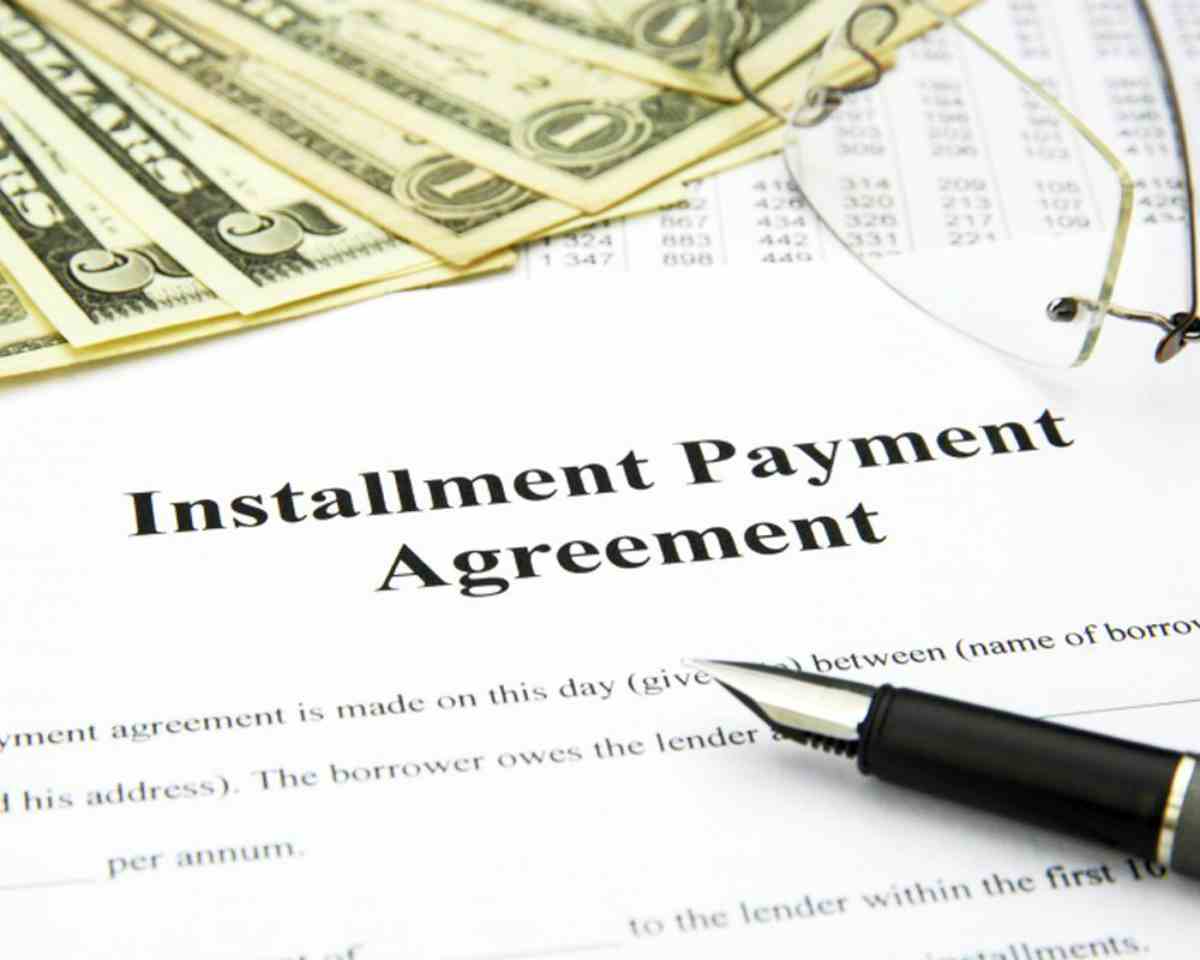If unpaid taxes are piling up on you, then it might be time to apply for a tax debt consolidation program that’ll help you wipe off those debts and lead to financial freedom.
In this article:
- What Is Tax Debt Consolidation?
- Why Is It Smart to Consolidate Tax Debt?
- How Do Tax Consolidation Plans Work?
- Who Qualifies for Debt Consolidation Installment Agreement Loans?
- When Does the Collection of Tax Debt Expire?
- Where Do I Get a Tax Debt Consolidation Loan?
Tax Debt Consolidation | Everything You Need to Know
What Is Tax Debt Consolidation?
If you have several years’ worth of unpaid taxes, then you might have wondered at least once whether it’s possible to consolidate these into one loan. Simply put: yes, you can consolidate tax debt.
But unlike consolidating other types of secured and unsecured debt, it doesn’t automatically reduce the amount you owe. Tax debt consolidation simply means merging all the taxes you owe into one big sum.
Taxpayers still have to pay the interest and penalties, but they can avoid legal implications that may put their status or assets at risk. Basically, tax debt consolidation is an easier way to pay off all your unpaid debts.
Why Is It Smart to Consolidate Tax Debt?
There is no shame in applying for a tax debt consolidation loan. Unexpected medical bills and emergencies can happen to anyone, and the IRS is fully aware of that.
In fact, that’s the whole reason why they made tax debt consolidation programs. Rather than forcing taxpayers to pay debts when they simply do not have the means, the IRS created programs that’ll allow them to reduce the amount owed, make monthly payments, or even both.
Similar to regular debt consolidation programs, the IRS takes all of your existing tax debt from years back and lumps it into one big loan. Afterward, taxpayers have the option of breaking down this loan into smaller monthly payments.
In fact, depending on your status, you may be able to stretch out the payment period for up to six years. That’s more than enough time for anyone to find the means to pay off their taxes.
Note: Keep in mind that getting tax debt consolidation does not wipe out all of a taxpayer’s existing debt. Rather, they consolidate it into one big amount that you will still have to pay.
That means taxpayers still have to shoulder the penalties and fees that accumulate for the duration of their tax debt consolidation loan.
How Do Tax Consolidation Plans Work?

On average, Americans accumulate a total of $458 billion worth of unpaid taxes every single year. The IRS wants to collect this amount one way or another.
Take note that it’s very hard to convince the IRS to minimize the taxes you owe. So it might be best to think twice before hiring that specialist who says they can save you pennies on a dollar.
Luckily, tax debt consolidation plans include programs such as the Offer in Compromise (OIC) and Installment Agreement loans.
The OIC is basically an agreement where the IRS reduces the amount of taxes you owe if you agree to pay them immediately or in the near future. Keep in mind that the OIC is hard to qualify for unless you prove that you’re facing economic/financial struggles.
Nonetheless, to qualify for the OIC, taxpayers must meet the following requirements:
- The IRS deems the tax-paying business or individual under doubt as to collectability. This means the IRS sees that it’s almost impossible to collect the taxes you owe in the near future due to financial struggles.
- Paying the new amount must not result in a new economic struggle for the taxpayer. The IRS won’t force businesses or individuals to pay their debt right away if it will put them out on the streets.
- If the IRS made a mistake on stating how much you or your business actually owe, you can file the form 656-L. While it’s a very rare scenario, it’s not impossible.
Who Qualifies for Debt Consolidation Installment Agreement Loans?
While there are plenty of tax debt consolidation programs to apply for, not every taxpayer may qualify for all of them. The terms and conditions still depend on a case-by-case basis.
Here are some of the best debt consolidation Installment Agreement loans by the IRS and how to qualify for them:
1. Guaranteed Installment Agreement
The Guaranteed Installment Agreement is a simple tax debt consolidation system. Basically, the IRS allows the taxpayer to pay off their outstanding obligations in monthly installment plans.
Under this payment plan, the IRS will not file a federal tax lien against you. A tax lien is the government’s legal claim against a taxpayer’s assets in the event that they fail to pay their taxes.
In the event of a tax lien, the IRS will also report the lien against you to credit bureaus, which will negatively affect your credit score.
To qualify for the Guaranteed Installment Agreement, individuals must meet the following:
- Excluding penalties and interests, the taxpayer must not owe more than $50,000 worth of taxes.
- The taxpayer must have paid any previous taxes owed, filed all tax returns, and has not applied for an installment plan in the past five years.
- Including tax liability, penalties, and interest, the taxpayer must agree to meet the minimum monthly payment. Generally, they must commit to paying off the debt in 36 months.
2. Streamlined Installment Agreements
Streamline Installment Agreements is a program that doesn’t inspect or verify a taxpayer’s assets, expenses, income, or debt. Simply put, the IRS does not conduct a Collection Information System on applicants.
Streamlined Installment Agreement terms usually go on for about 60 months, but can be extended to as long as 84 months depending on the taxpayer. Of course, it must not exceed the Collection Statute Expiration Date (CSED) or the 10-year timeframe where your tax expires.
To qualify for the SIA, taxpayers must meet the following:
- They must not owe more than $100,000 worth of taxes. This includes all penalties and interests that will accumulate for the duration of the SIA plan.
- For taxpayers that owe $50,000 or less, they must pay the tax amount in seven years or before the CSED, whichever comes first. On the other hand, taxpayers who owe $50,000 to $100,000 must agree to sign a waiver to extend the repayment period in the event that the CSED cuts the SIA short.
- To qualify, taxpayers must have filed all previous tax returns.
- Taxpayers filing for bankruptcy cannot apply for SIA. Similarly, those who have entered an installment plan in the past five years do not qualify.
3. Partial Payment Installment Agreement (PPIA)

The Partial Payment Installment Agreement is a program that suits taxpayers who are truly experiencing financial hardships. If you cannot meet the minimum monthly payments on other tax debt consolidation programs, then the PPIA might be for you.
While the PPIA requires taxpayers to make minimum monthly payments, they don’t necessarily have to pay the entire tax amount they owe. The IRS waives any amount left over after the payment period.
The IRS decides what your minimum monthly payments are depending on your tax status, income, assets, and other personal information. To qualify for a PPIA, taxpayers must meet the following:
- Taxpayers must owe at least $10,000 worth of tax including interest and penalties.
- They shouldn’t be filing for or are in bankruptcy.
- To qualify, they must have not entered an installment agreement in the past five years.
- The IRS must deem it impossible for the taxpayer to liquidate their assets. This is a very crucial part of the approval process.
4. Non-Streamlined Installment Agreement
This is for taxpayers who didn’t meet the standard requirements of a Streamlined and Guaranteed Installment Agreement. While this debt consolidation program still has its own set of requirements, taxpayers will have the chance to negotiate with an IRS agent.
During the assessment, they would review your assets, income, existing debt, and expenses. Afterward, the manager reviews the proposal and the IRS reaches a final decision.
Keep in mind that this process usually takes a few months to complete.
To qualify for a non-streamlined installment agreement, taxpayers need to meet the following conditions:
- Taxpayers must not be bankrupt.
- They should have filed all previous tax returns.
- The taxpayers must agree to make the minimum monthly payments.
- Taxpayers must not have applied for a tax debt consolidation plan in the past five years.
RELATED: How Do IRS Payment Plans Work? | FAQs
When Does the Collection of Tax Debt Expire?
Chances are, the amount of tax debt in the US Treasury far exceeds the government’s resources to actually collect that debt. With that in mind, some taxpayers may wonder if tax debt actually goes away on its own
The simple answer to that question is yes. Generally, the IRS has 10 years to collect a tax debt –this is what they call the Collection Statute Expiration Date (CSED).
If the IRS fails to collect your taxes after 10 years, transcripts will read an account balance of zero. It also shows the expiration of the statute collection date.
Similarly, any supposed tax liens expire and the IRS can no longer enforce them under the rule of law. A lot of taxpayers call this strategy “running out” the IRS.
But remember that as mandated by law, every U.S. citizen must pay their taxes. Instead of outrunning the IRS, taxpayers should just check out which debt consolidation programs they can apply for.
While it may be possible for tax debt to expire, the legal implications you may face during that 10-year timeframe may be too much to handle.
Keep in mind that the IRS doesn’t exist to make your life hard. They don’t discriminate against anyone and it’s simply their duty to collect the taxes that every citizen in the country owes.
If a taxpayer has trouble paying their taxes on time, they should immediately call the IRS or a professional tax consultant.
Under no circumstances are you to attempt to avoid paying your taxes. Plus, you cannot achieve true financial freedom if you spend a decade of your life running away from tax debt.
Where Do I Get a Tax Debt Consolidation Loan?
Unlike consolidating other types of secured and unsecured debt, there aren’t any debt consolidation companies for taxpayers to turn to. Of course, there are professionals who can help you apply for a program, but they won’t be lending you the money for consolidation.
To apply for a tax debt consolidation loan, taxpayers must first contact the IRS at 1-800-829-1040. A customer service representative will brief you about your tax status and what you need to do.
Overall, the best way to avoid unpaid taxes is to pay them on time. You should only use tax debt consolidation programs as a last resort.
Make sure to file your returns and pay your taxes every time to maintain a good tax status. The IRS is more likely to favor taxpayers with a good standing than those who are notorious for making late payments and filing late tax returns.
Do you have any questions on tax debt consolidation? Post them in the comments section down below!
Up Next: 11 Tips On Filing Back Taxes

